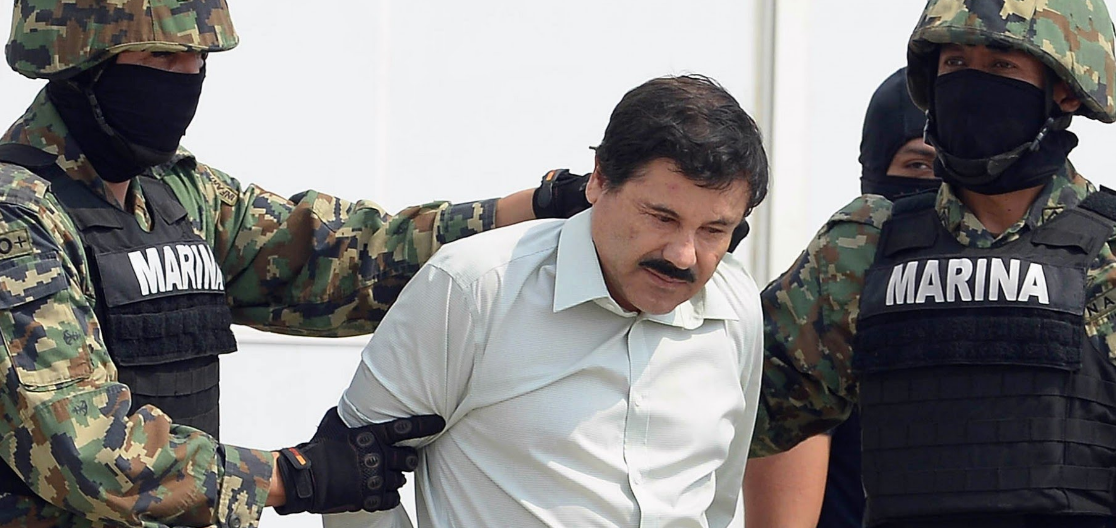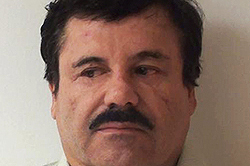- Two judges in Mexico have approved separate U.S. extradition requests for Joaquín “El Chapo” Guzman based on charges filed in Florida and Texas, and Mexican authorities have moved the drug lord to a prison on the U.S. border. Scholar Nathan B. Jones studies the angles of this high-profile case for the Baker Institute Mexico Center.
Two judges in Mexico have ruled that there is nothing stopping the extradition of Joaquín “El Chapo” Guzman to the United States, and following the first of those rulings Guzman was transferred on May 7 to a prison in Ciudad Juarez near the Texas border, the The New York Times reported.
As the article states, this suggests that Mexico‘s secretary of foreign relations and the Enrique Peña Nieto administration will have 30 days to decide whether to extradite him, though the process could still take months, if not years, with defense appeals. The likely fear for some powerful and corrupt officials in Mexico is that Guzman has a wealth of information related to their dirty dealings with drug traffickers.
This article was originally published by the Baker Institute Blog and was edited for clarity and republished with permission by insightcrime.org. The original can been seen here.
As security expert Alejandro Hope has pointed out, the fear for the Mexican government could also be that the flow of intel from Guzman could shut down once he is in the United States as US law enforcement officials become tightlipped in fear of leaks to Mexico. The unintended impact of the United States’ involvement in the decapitations of cartel leadership figures is now on everyone’s mind following Alfredo Corchado’s recent brilliant reporting for the Dallas Morning News on the plea deal Gulf Cartel head Osiel Cardenas Guillen agreed to once in US custody.
Moving Guzman could serve multiple functions. First, an unscheduled and unannounced move could be an effective mechanism to disrupt a potential escape plot. Guzman has twice escaped from maximum security prisons, and most of these prisons have the exact same layouts, as we learned from his last escape.
At any time, Guzman simply could be driven across the border in the middle of the night to El Paso where he could also stand trial.
Second, moving Guzman to Juarez puts him closer to US surveillance. The Drug Enforcement Administration’s El Paso Intelligence Center (EPIC) is just across the border, as are many other US assets, including possibly a rapid reaction force. At this point, the normally sovereignty sensitive Mexican government is likely increasing its cooperation with the US on this matter to avoid another humiliation.
Third, his presence in Juarez could facilitate a rapid and unannounced transfer to US custody. An extradition request was submitted prior to his last escape. A US counter cartel task force member offered an excellent description of this extradition process during a National Law Enforcement Memorial Fund event featuring the law enforcement task force members that targeted the Arellano Felix Organization, also known as the Tijuana Cartel.
Fourth, while federal indictments against Guzman filed in New York and Chicago have garnered the most attention, he also faces indictment in the Western district of Texas. It is from that district, including El Paso, thatthe latest extradition request eminates. Guzman’s extradition could be handled differently from other past major kingpin extraditions, which were typically conducted via airplane and airports. At any time, Guzman simply could be driven across the border in the middle of the night to El Paso where he could also stand trial, making Texas a one-stop shop for both his extradition and the first of many potential trials.
The conspiracy theory that I find highly unlikely is that this is a move to allow Guzman to escape, orchestrated at the highest levels of government. That has not stopped former DEA agents from validly pointing out that the Sinaloa Cartel has the infrastructure in place in Ciudad Juarez to pull off such an operation and that the quality of the Ciudad Juarez prison is low.
I predict a fairly rapid extradition process from here, but I must admit I have been wrong in the past on things related to “El Chapo” Guzman: I was fairly certain the Mexican Marines would not bring him in alive a second time.
By Nathan P. Jones
*Nathan P. Jones is a nonresident scholar for the Baker Institute Mexico Center and Drug Policy Program. He is also an assistant professor of security studies at Sam Houston State University.
Source: insightcrime.org


